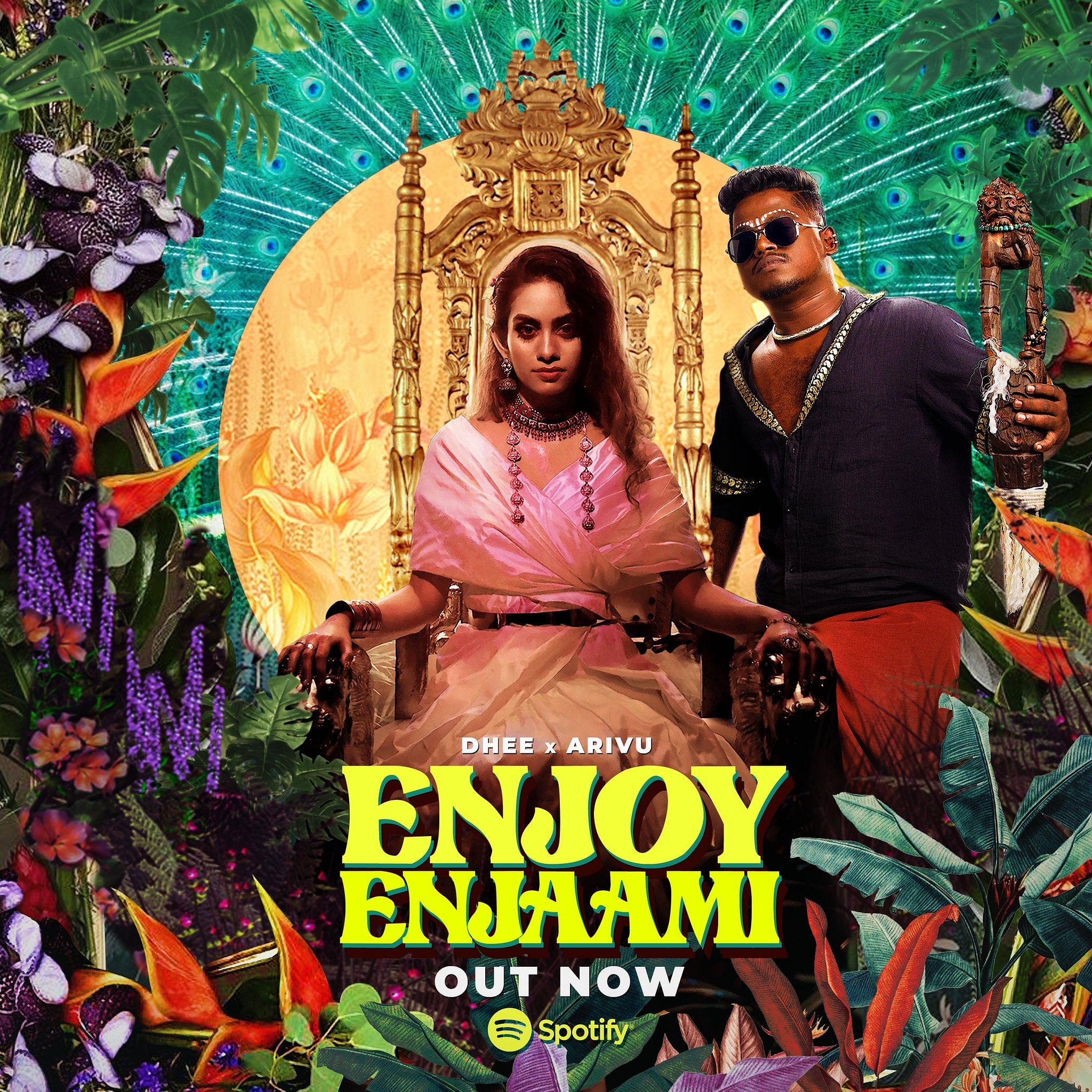
If within seconds of watching or listening to the song ‘Enjoy Enjaami,’ you are reminded of Africa, it is by design. The similarities are social, cultural, political and geographical.
Rap was born as the musical voice of the oppressed, poor and disenfranchised. “If rap is about story-telling, my grandmother is the world’s best story-teller,” says lyricist and singer Arivu, featured in the video that has gone viral with over 10 million views on YouTube. ‘Enjoy Enjaami’, sung by Dhee, is the story of Valliammal, Arivu’s grandmother, who fondly used to address him as ‘Enjaami’ (‘en saami’, meaning my God).
Ace music composer and Dhee’s father Santhosh Narayanan has produced the video while Amith Krishnan is the director. The world-class visuals and lyrics received praise from AR Rahman as well.
Colonial India, with a poverty-stricken population and in a way like present India, was a market for cheap labour. Hordes of Tamil people migrated to Ceylon in the 19th century to work in the tea, coffee and rubber plantations.
A similar migration to Malaysia is depicted in Pa. Ranjith’s Rajinikanth-starrer ‘Kabali’ (2016). The virgin forests of Ceylon made way for city roads and it was the sweat and blood of these Tamil people that made all the construction possible.
Over time, the migrant workers became expendable and were sent back to their native villages. Having worked only on the plantations, they migrated to Ooty and Kodaikanal to work on plantations there, but were rendered jobless there as well.
When they couldn’t find plantation employment anymore, they took up trades like masonry and painting. Valliammal is from the lineage of these plantation workers. “The song is a celebration of life, earth and ancestors”, says Dhee, who also delivers a powerful on-screen presence.
The 22-year old has many hits to her credit already, with the chartbuster ‘Rowdy Baby’ from ‘Maari 2’ being the most popular.
Arivu, who has written songs in Rajinikanth’s ‘Kaala’ (2018) and Vijay’s ‘Master’, takes pride in being a part of ‘The Casteless Collective’, a Chennai-based Tamil indie band supported and mentored by Ranjith.
His lyrics are political and rebellious. Perhaps to symbolise the death of equality, Arivu uses the ‘oppari’ (funeral song) format as he believes that’s the original Indian hip-hop.
Independent music is a symbol of freedom. The coming together of Dhee and Arivu, two artists from different social strata, is perhaps the best way to champion the “indie-cause”. Entertainment through art is important, but limiting art to mere entertainment would undervalue its potency.
Art can sensitise us, break barriers, unify people. ‘Enjoy Enjaami’ has brought people from different corners together.